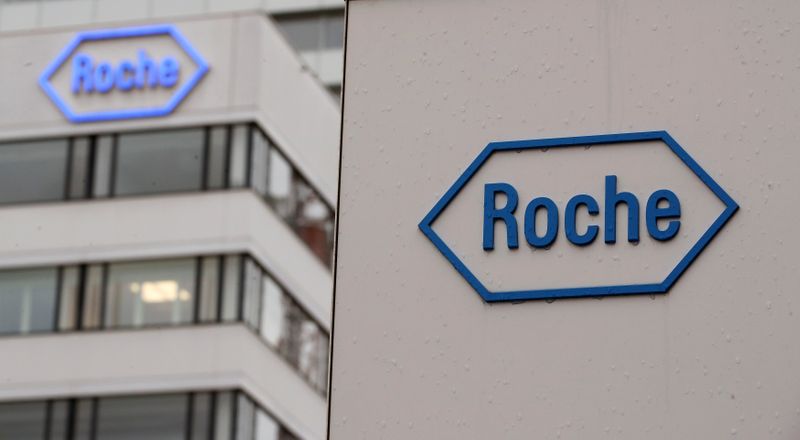ZURICH (Reuters) – Roche is filling a testing portfolio gap by buying U.S.-based GenMark Diagnostics in a $1.8 billion deal that the Swiss pharmaceuticals manufacturer said taps one of the fastest-growing diagnostics areas.
Basel-based Roche launched a cash offer for GenMark for $24.05 per share, a premium of 43% on GenMark’s Feb. 10 share price, before media deal speculation. The transaction should close in the second quarter.
GenMark makes “syndromic panel tests” to simultaneously detect multiple pathogens responsible for respiratory illnesses like pneumonia or the dangerous blood infection sepsis, an area Roche has sought to enter to challenge rivals like France’s bioMerieux.
The market for such tests in 2019 was $800 million annually, Roche diagnostics head Thomas Schinecker said, citing industry figures, adding it should grow by 20% annually to top $2 billion by 2024. GenMark has 7% market share now, he estimated, but Roche aims to significantly boost that four years from now.
“We can leverage our commercial strength, that’s one,” Schinecker said in an interview. “Secondly, we believe we can leverage our knowledge in manufacturing, to really help in scale and bring down costs.”
Genmark has an installed base of 792 analyzers worldwide, while bioMerieux has 14,000 of its BioFire analyzers.
GenMark shares rose 28%. Roche shares added 1.5% at 1445 GMT.
Analysts said the move will expand Roche’s presence in hospitals, from its existing focus on centralized labs.
“A broader presence in hospitals (that may choose to do more testing in-house) makes strategic sense,” UBS analysts wrote.
Beyond GenMark’s respiratory infections and sepsis tests, it is developing a third, for gastrointestinal infections.
Hospitals use such panel tests to diagnose critically ill patients and match them with targeted treatments, in part to avoid inappropriate use of antibiotics that may lead to antibiotic-resistant bacteria.
“Using antibiotics without having a real target in mind is going to cause a big crisis,” Schinecker said.
(Reporting by John Miller and John Revill; Editing by Riham Alkousaa, Sherry Jacob-Phillips and Ed Osmond)

























